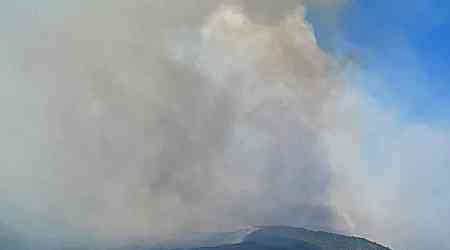
Tensions between neighbors Pakistan and Afghanistan are running high as the Pakistani Defense Minister Khawaja Asif said this week that his country plans to continue launching cross-border attacks as part of a new military operation to curb terrorism. The comments mark a notable shift for Pakistani officials who, until now, had only admitted to one such cross-border strike in March.
[time-brightcove not-tgx=”true”]“We won’t serve them with cake and pastries. If attacked, we’ll attack back,” Asif told the BBC.
Pakistan has experienced a surge in violence since the Pakistani Taliban, or Tehrik-e Taliban Pakistan (TTP), a close ally of the Afghan Taliban, unilaterally ended a ceasefire with Islamabad in November 2022. Last year alone, more than 700 attacks killed nearly 1,000 people.
The Pakistani government accuses the Afghan Taliban of providing a safe haven to the TTP. In recent years, Islamabad has made various attempts to contain the TTP, including talks, erecting a border fence between Pakistan and Afghanistan, and applying pressure on the Afghan government to stop assisting the militant group. This included the expulsion of over 500,000 Afghan refugees last October, with a second phase to expel another 800,000 commencing earlier this month.
Yet experts tell TIME that Pakistan has little power to stem the violence that overwhelmingly afflicts its two border regions with Afghanistan. That’s because Islamabad can no longer leverage the wartime support it offered the Taliban during the U.S. war in Afghanistan to help rein in the TTP. “Pakistan finds itself in a predicament largely of its own making—the Taliban leadership that it supported throughout much of the 20-year insurgency in Afghanistan is now sheltering militant groups targeting Islamabad,” says Joshua White, a professor in international affairs at Johns Hopkins University.
Read More: Why Pakistan Fails to Stop Jihadi Attacks
What’s driving tensions between the former allies?
While relations between Pakistan and Afghanistan have been fraught in recent years, two underlying tension points—the border and cross-border violence—have been longstanding.
“No Afghan government, including the current Taliban regime, has recognized the [official] border since Pakistan’s independence,” says Michael Kugelman, the director of the South Asia Institute at the Wilson Center. “And each side has long accused the other of sheltering terrorists that carry out attacks in the other country.”
The colonial-era Durand Line, which stretches over 1,640 miles, officially separates Pakistan from Afghanistan. Afghanistan has never recognized the border but the Taliban has come out more strongly on the issue, and numerous skirmishes have erupted between Taliban fighters and Pakistani soldiers putting up border fencing, leading to the closures of border crossings. “Border tensions have sharpened because the Taliban have been especially aggressive in asserting their position,” Kugelman says.
The border cuts through tribal areas dominated by the Pashtuns, the largest ethnic group in the border regions of both countries. Pakistan has vowed to complete the barbed-wire fencing along the internationally recognized border, which the Taliban says separates families.
With the war in Afghanistan no longer at play, the Taliban does not need to depend on Pakistan for sanctuaries and other wartime support. Instead, it seeks more legitimacy back at home, where many Afghans have long distrusted the Pakistani government. “By lashing out at Pakistan, the Taliban hopes to buy some goodwill from the Afghan public,” Kugelman says.
Will tensions ease soon?
Despite the tensions, the two countries are engaged in regular diplomacy. During recent talks hosted by the U.N. in Doha, Pakistan’s special envoy to Afghanistan met with the Taliban, while Ishaq Dar, Pakistan’s Foreign Minister, has said that his office plans to visit to Kabul in the coming months. “Make no mistake, Afghanistan has not been ignored by this government,” Dar said.
Read More: Afghanistan, One Year On From U.S. Withdrawal
But border tensions are “too contentious and complex to resolve anytime soon,” Kugelman says. Tensions may soar further if Pakistan’s new military operation leads to more frequent and sustained force at the disputed border.
Pakistan government sources who spoke to the BBC have suggested that the country’s new military operation directly stems from pressure from China. Many Chinese nationals are working on China-Pakistan Economic Corridor projects in Pakistan as part of the Belt and Road initiative. In March, five Chinese engineers in the northwest of the country were killed when a suicide bomber, who Pakistan alleged was an Afghan national, rammed a vehicle into their convoy.
At the same time, Beijing has ample leverage over the Taliban due to China’s capacity to invest in sanction-hit Afghanistan. “If Beijing, dangling that incentive of investment assistance, is able to convince the Taliban to curb militancy, both domestically focused in Afghanistan and cross-border in Pakistan, that would help both China and Pakistan,” Kugelman says.

























